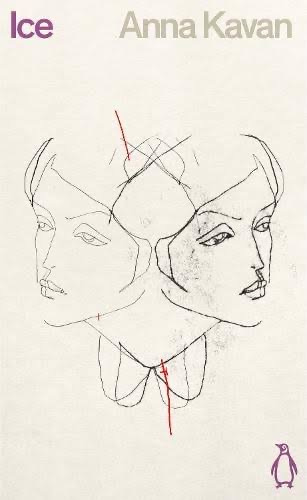Everything was so quiet, as if the silence was listening.
Loneliness in Ice
Anna Kavan's novel Ice is a haunting and deeply atmospheric exploration of the theme of loneliness. The story takes place in a world covered in an unrelenting layer of ice, where the characters are forced to confront their own isolation and the sense of emptiness that comes with it.
One of the most striking aspects of Ice is the way in which Kavan uses the icy landscape to evoke a sense of profound loneliness. As the protagonist, known only as the narrator, travels through the frozen world, she is constantly confronted with the desolate beauty of her surroundings. "The air was so cold that it seemed to cut like a knife," she observes, "and the snow lay like a blanket over everything, muffling all sound." This description not only highlights the starkness of the landscape, but also the sense of isolation it creates.
As the narrator moves through this icy world, she becomes increasingly aware of the ways in which her own loneliness mirrors that of the world around her. She describes herself as feeling "adrift in a world of ice," and at times it seems as though the frozen landscape is a reflection of her own inner emptiness. "The ice was like a mirror," she observes, "reflecting back at me my own sense of isolation and despair."
Another way in which Kavan explores the theme of loneliness in Ice is through the relationships between the characters. Although the narrator encounters a number of other people on her journey, including a group of soldiers and a young girl named Silver, she is never able to form a real connection with any of them. "There was a kind of gulf between us," she observes, "a sense of separation that could not be bridged." This sense of disconnection is heightened by the fact that many of the characters in the novel are struggling with their own inner demons, making it all but impossible for them to connect with one another.
Despite the pervasive sense of loneliness that runs throughout "Ice," there are moments of beauty and connection that offer glimmers of hope. One of the most powerful of these moments comes towards the end of the novel, when the narrator encounters a mysterious figure known only as the Warden. Although the Warden is initially standoffish and difficult to approach, the narrator eventually finds herself drawn to him, and they form a deep and meaningful connection. "It was as though he understood me in a way that no one else ever had," she observes. "For the first time in a long time, I felt truly seen and understood."
Ice is a deeply affecting exploration of the theme of loneliness. Through her use of language and imagery, Kavan creates a world that is both beautiful and haunting, evoking a sense of isolation and emptiness that is palpable throughout the novel. And yet, even in this bleak landscape, there are moments of connection and beauty that offer a glimmer of hope. Ice is a powerful testament to the human capacity for resilience and connection, even in the face of overwhelming loneliness.
Anna Kavan was the pen name of Helen Woods, a British novelist, short story writer, and painter. She was born in Cannes, France in 1901 and spent most of her childhood in Europe. She began her writing career in the 1930s, publishing several novels and collections of short stories.
Kavan is perhaps best known for her novel "Ice," which was published in 1967 and is considered a modernist masterpiece. The novel follows a woman's journey through a surreal, icy landscape, and has been interpreted as a metaphor for Kavan's struggles with addiction and mental illness.
Throughout her life, Kavan struggled with heroin addiction and spent time in psychiatric hospitals. She also suffered from depression and anxiety, and her personal life was marked by several failed marriages and relationships.
Kavan's writing is characterized by its dreamlike quality, surreal imagery, and themes of isolation, trauma, and mental illness. She died in London in 1968 at the age of 67.




Medical care is so important and is often the cause of many a great writer or artist slipping away when they had so much more to give.